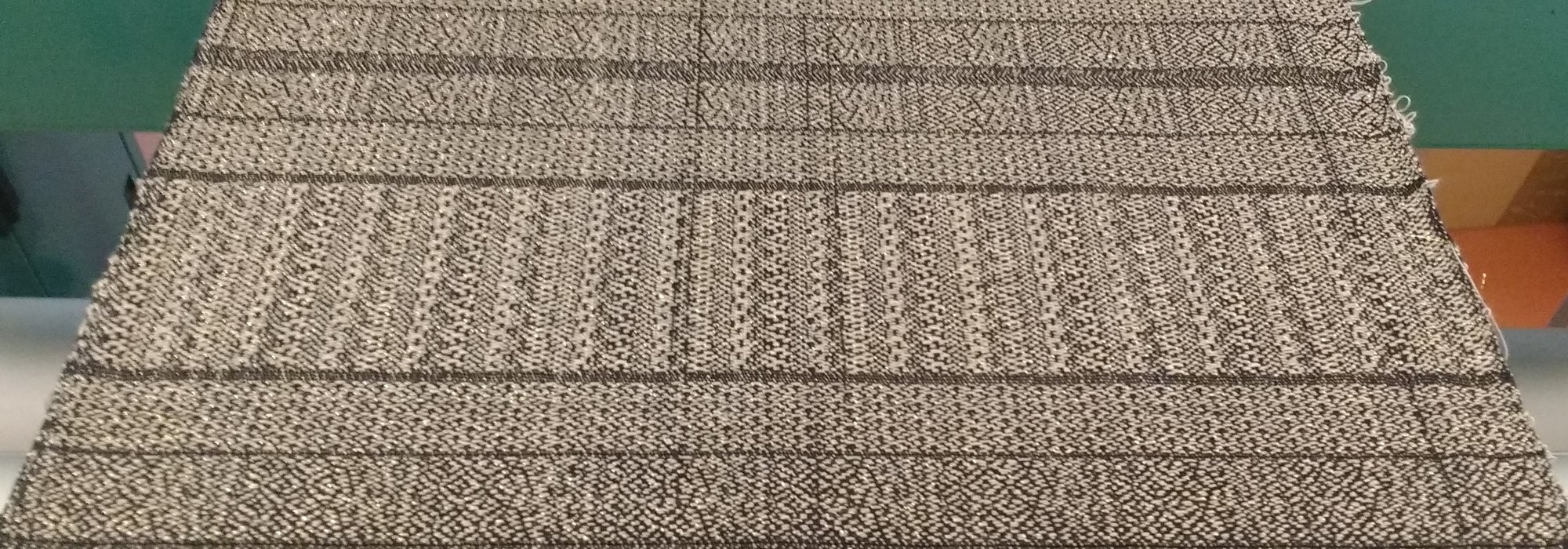 Here’s a major life event – I’m starting a UKRI Future Leaders Fellowship with Then Try This!
Here’s a major life event – I’m starting a UKRI Future Leaders Fellowship with Then Try This!
This is a four-year, full time fellowship, developing a theme that I’m calling “Algorithmic Pattern”, building on my work with e.g. TidalCycles and the PENELOPE project to explore new technologies based on ancient pattern-making practices.
Getting such a fellowship is an involved process, requiring a lot of help from collaborators, colleagues and friends (thanks!) to even submit a proposal. I wrote an uncompromising and unusual ‘case for support’, involving a wide range of interdisciplinary collaborators, and with a 15% success rate for the programme it was very much a long shot.. At the start I treated it as an opportunity to map out all the things I wanted to achieve in my professional life, and as a kind of experiment in imagining how research could be done in an ideal world. So what seemed like a dream at the start progressed with rising stress levels as things slowly developed towards a reality.
To give you an idea of the process, I started writing the proposal (over many, many pages) back in January 2020, submitted it in June 2020, received and responded to five detailed peer reviews in November 2020, and was invited to interview in March 2021. Then followed a lot of spam-folder searching until I finally got the successful result in May. It still didn’t feel real though, there were financial checks and organisational due diligence procedures to go through, plus an embargo so I couldn’t tell anyone until this month (September 2021). I didn’t receive the final grant offer letter until this week. It’s happening!
 One reason that this Future Leaders Fellowship proposal felt uncompromising and unusual is that the scheme is about developing ‘future leaders’, and I really don’t fit the conventional model of leadership. Building and leading research groups in academic institutions has a lot going for it, but often comes with a high administrative burden and other institutional overheads that can distract from the work. Also I think I will always be happier working with collaborators on equal terms, rather than directing a team. Happily, the five esteemed peers, and the sifting and interview panel members reviewing my application bought into a model of leadership that is about collaboration and creating new ways of doing research, rather than building hierarchies.
One reason that this Future Leaders Fellowship proposal felt uncompromising and unusual is that the scheme is about developing ‘future leaders’, and I really don’t fit the conventional model of leadership. Building and leading research groups in academic institutions has a lot going for it, but often comes with a high administrative burden and other institutional overheads that can distract from the work. Also I think I will always be happier working with collaborators on equal terms, rather than directing a team. Happily, the five esteemed peers, and the sifting and interview panel members reviewing my application bought into a model of leadership that is about collaboration and creating new ways of doing research, rather than building hierarchies.
Indeed one really great aspect of this fellowship programme is that it supports alternative career paths, and unusually for fellowships, careers outside of academia. My proposal is built around the ethos of its host Then Try This (formerly known as FoAM Kernow), a non-profit, independent, open access research lab based in Penryn, Cornwall. I’ve collaborated on research projects with them for many years, and during this time have grown to love their approach to research outside of both academia and industry. For example:
- I share their uncompromising approach to open access and open source, which is essential for open collaboration outside the restrictions of competition. Then Try This only publish open access, and we’re moving towards only citing open access sources as well. The same goes for software and hardware – it’s all free software/open hardware.
- Then Try This have a no-fly policy, and consider the wider environmental impact of everything they do. I don’t think it makes any sense to think about the future without this kind of outlook. (Yet a kind of soft climate change denial is endemic in many universities, where senior academics fly many times a year, even for short meetings and conference weekends.)
- They also take food seriously, menus are considered for every workshop (and for online lockdown workshops, posted to your home). I’ll try to live up to this!
These examples — access to research, sustainability, and sustenance — are just a few examples of what I think are prerequisites for meaningful research, that Then Try This is able to do well as an independent nonprofit. It’s really amazing what Amber and Dave have created and I know it hasn’t come easy. Not only did they put many hours into supporting my application, but also put years of work into creating a space that makes research like mine possible. You can find more about the organisation on the then try this website, including their articles of association and ethical policies.
Well there’s much more still to be said, including about all the amazing collaborators I’ll be working with and the strands that we’ll be exploring. So more posts to come (perhaps on an alpaca-specific blog), but for now I just wanted to share how excited I am to be looking ahead at four years of pure research within such a progressive non-profit organisation. Things can be done differently!